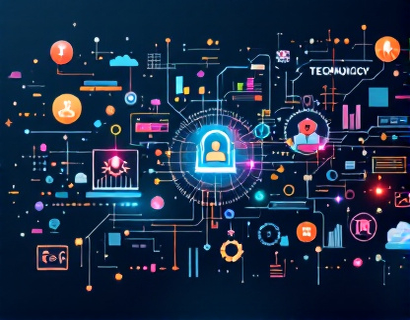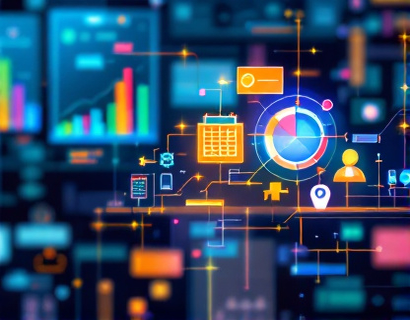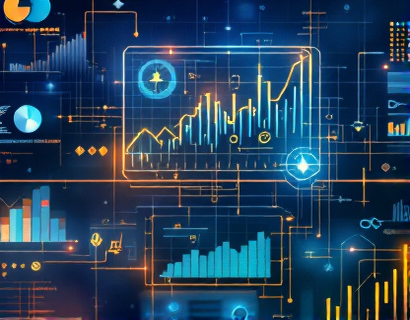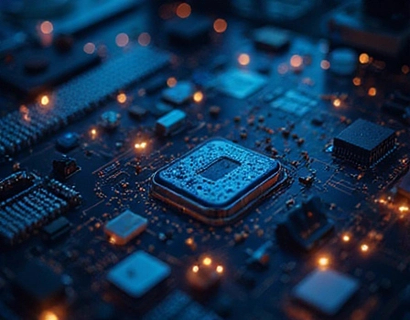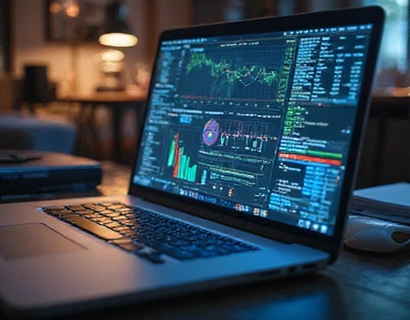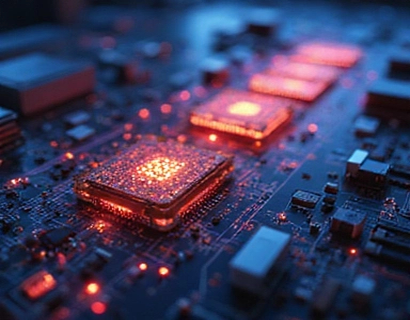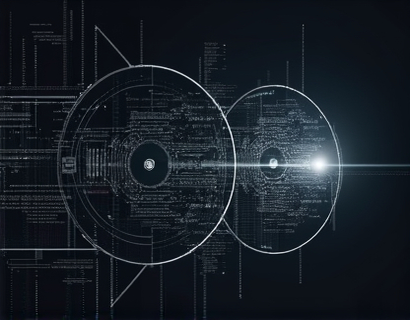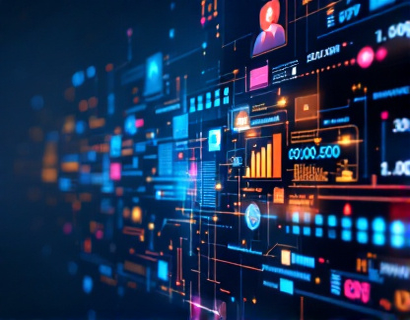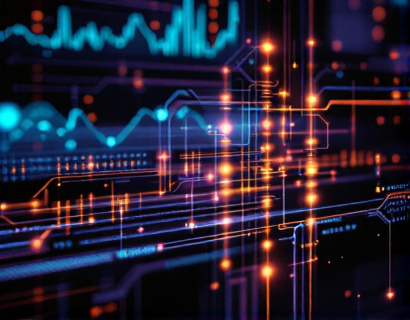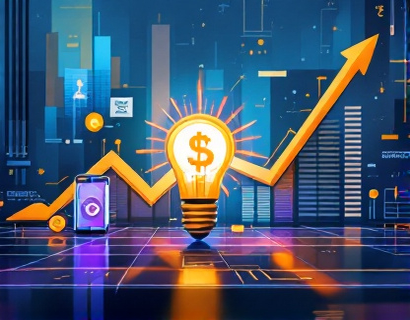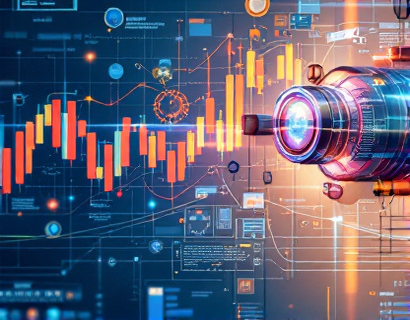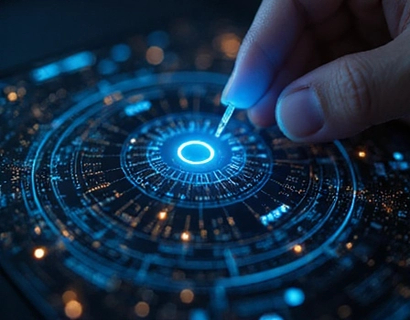Decentralized Transformation: Harnessing Crypto and AI for Next-Gen Digital Solutions
The digital landscape is undergoing a profound transformation, driven by the convergence of cryptocurrency and artificial intelligence. This fusion is giving rise to decentralized applications and AI-driven services that are redefining user experiences and engagement. For tech enthusiasts and early adopters, understanding this evolution is crucial as it promises to unlock new possibilities in the realm of digital innovation.
The concept of decentralization has been a cornerstone of the blockchain revolution, offering a paradigm shift from centralized systems to distributed networks. This shift is not just about transferring control and data management but also about creating more secure, transparent, and user-centric platforms. When combined with the capabilities of artificial intelligence, the potential for innovation becomes immense.
Understanding Decentralized Applications
Decentralized applications, or dApps, are software programs that run on a blockchain or a decentralized network rather than on a central server. This design eliminates single points of failure and reduces the risk of censorship or manipulation. dApps leverage smart contracts, which are self-executing contracts with the terms directly written into code, to automate and enforce agreements without intermediaries.
The beauty of dApps lies in their ability to operate independently of central authorities, making them ideal for various use cases such as finance, supply chain management, and social networking. By removing intermediaries, dApps can offer lower transaction costs, increased speed, and greater privacy for users.
Role of Cryptocurrency in Decentralized Systems
Cryptocurrency plays a pivotal role in the functioning of decentralized systems. It serves as the medium of exchange, enabling peer-to-peer transactions without the need for traditional financial institutions. Blockchain technology ensures that all transactions are recorded transparently and immutably, enhancing trust and security.
Beyond simple transactions, cryptocurrencies can also represent assets, rights, or even identity. This versatility opens up new avenues for decentralized finance (DeFi), where users can lend, borrow, and trade assets in a trustless environment. The integration of AI further enhances these financial services by providing predictive analytics, risk assessment, and personalized financial advice.
AI in Decentralized Ecosystems
Artificial intelligence is transforming decentralized ecosystems by bringing intelligence and automation to various processes. AI algorithms can analyze vast amounts of data from the blockchain, identifying patterns and insights that can improve system efficiency and user experience. For instance, AI can optimize resource allocation, enhance security measures, and personalize user interfaces based on behavior and preferences.
One of the most exciting applications of AI in decentralized systems is the development of autonomous agents. These agents can perform tasks such as data verification, transaction execution, and even content moderation without human intervention. This not only reduces operational costs but also ensures consistent and unbiased performance.
Enhancing User Engagement through AI and Crypto
The combination of AI and cryptocurrency is revolutionizing how users interact with digital platforms. AI-driven chatbots and virtual assistants can provide instant support and guidance, enhancing user engagement and satisfaction. These AI tools can understand natural language, recognize user intent, and offer personalized recommendations, making the user experience more intuitive and seamless.
Moreover, AI can analyze user data to create more engaging and relevant content. By understanding user preferences and behaviors, AI algorithms can curate personalized feeds, recommendations, and notifications. This level of personalization not only keeps users engaged but also increases the likelihood of them participating actively in the ecosystem.
Case Studies and Real-World Applications
Several projects are already demonstrating the power of combining AI and decentralization. One notable example is a decentralized social media platform that uses AI to moderate content and ensure a safe user environment. The platform employs AI algorithms to detect and remove harmful content, while blockchain ensures that user data is secure and transparent.
Another example is a decentralized gaming platform where AI is used to generate dynamic game content and NPC behaviors. This not only enhances the gaming experience but also allows for unique and unpredictable gameplay each time. The use of cryptocurrencies in this context enables in-game transactions and rewards, creating a fully decentralized and player-owned economy.
Challenges and Considerations
While the potential of AI and decentralization is vast, there are several challenges that need to be addressed. Scalability remains a significant issue for blockchain networks, as they struggle to handle high volumes of transactions efficiently. However, ongoing developments in layer 2 solutions and blockchain optimizations are gradually addressing these concerns.
Another challenge is the regulatory landscape, which is still evolving and often uncertain. Navigating compliance and ensuring legal adherence is crucial for the adoption and success of decentralized applications. Additionally, user education is essential to foster trust and widespread adoption of these technologies.
Future Prospects
The future of decentralized transformation is bright, with AI and cryptocurrency continuing to drive innovation. As technology advances, we can expect more sophisticated AI models that can operate on decentralized networks, further enhancing the capabilities of dApps. The integration of AI with other emerging technologies like the Internet of Things (IoT) and 5G will create even more interconnected and intelligent systems.
The potential for decentralized solutions to disrupt traditional industries is immense. From healthcare and finance to education and governance, the impact of AI and cryptocurrency is set to be transformative. By empowering users and fostering a more inclusive and transparent digital environment, these technologies are paving the way for a new era of digital innovation.
In conclusion, the fusion of AI and decentralization is not just a technological trend but a fundamental shift in how we approach digital solutions. For those interested in exploring this frontier, the opportunities are vast and the potential for impact is enormous. Embrace the decentralized transformation and be part of shaping the future of digital innovation.








